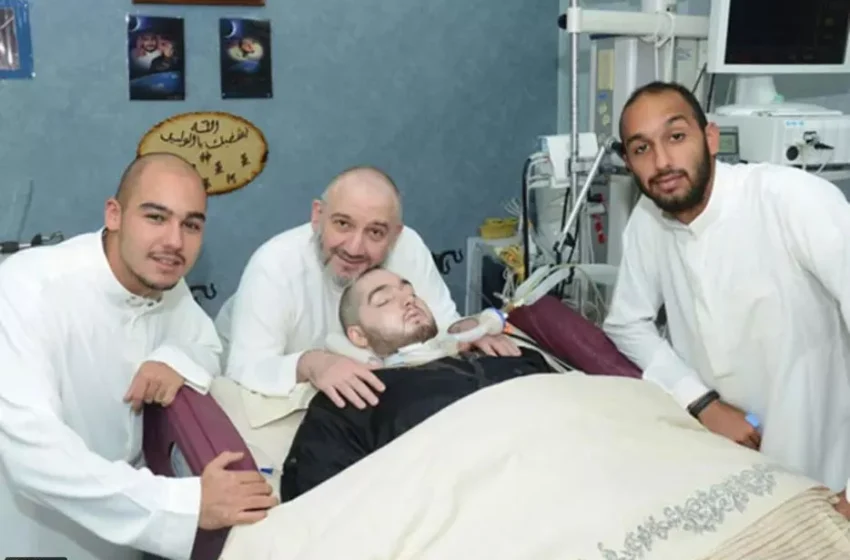Prince Alwaleed bin Khalid bin Talal: 10 things to know about Saudi Arabia’s ‘Sleeping Prince’

The silent prince: 10 powerful facts about Al-Waleed bin Khalid’s 19-year coma and enduring legacy
Prince Al-Waleed bin Khalid bin Talal Al Saud, known worldwide as Saudi Arabia’s “Sleeping Prince,” lived most of his life in silence—but his story resonated deeply across generations. Following a tragic car accident in 2005, the young royal slipped into a coma that would last 19 years.
His eventual death in July 2025 marked the end of a remarkable chapter defined by faith, hope, and medical endurance. Here are 10 essential things to know about the prince whose stillness stirred the world.
READ ALSO
Prince Alwaleed bin Khalid bin Talal: Saudi Arabia’s ‘Sleeping Prince’ dies after 19 years in coma
Al-Waleed bin Khaled bin Talal: Did Saudi ‘Sleeping Prince’ wake up from coma?
1. He Was Born Into Saudi Arabia’s Influential Royal Family
Prince Al-Waleed bin Khalid was born in April 1990 into the powerful House of Al Saud, the ruling royal family of Saudi Arabia. He was the eldest son of Prince Khalid bin Talal Al Saud, making him a grandson of Prince Talal bin Abdulaziz and a great-grandson of King Abdulaziz, the founder of modern Saudi Arabia. His lineage placed him close to the core of Saudi Arabia’s royal hierarchy.
2. He Was Known for His Military Ambitions Before the Accident
Before his tragic accident, Prince Al-Waleed had shown interest in serving his country through military service. At the age of 15, he was undergoing military training at a military academy in London, a path often taken by elite members of Gulf monarchies to gain formal defense and leadership education.
3. A 2005 Car Crash Changed His Life Forever
In 2005, Prince Al-Waleed was involved in a severe car accident in London. The crash resulted in traumatic brain injury (TBI) and internal bleeding, which led him to fall into a deep coma. He never regained full consciousness. The accident left him in a persistent vegetative state—a condition characterized by wakefulness without awareness.
4. He Was in a Coma for 19 Years
The prince remained in a coma for nearly two decades, from 2005 until his death in July 2025. His case became one of the longest-documented comas involving a high-profile individual. His continued life support was seen by many as a symbol of parental love, while sparking ethical debates on prolonged medical care.
5. His Father Refused to Remove Him from Life Support
Despite medical advice suggesting there was little to no chance of recovery, Prince Khalid bin Talal—his father—consistently refused to disconnect life support, citing religious beliefs, personal conviction, and hope in divine healing. The family’s faith-based decision became central to the prince’s story, making it widely known in the Muslim world.
6. He Became a Symbol of Faith and Hope
Dubbed the “Sleeping Prince”, his story resonated with millions across the Middle East. Videos of his faint movements—such as hand twitches or blinks—were shared by his family and interpreted as signs of hope. These moments, though medically inconclusive, strengthened public emotional connection to his story and to his family’s steadfast hope.
7. He Was Treated at King Abdulaziz Medical City in Riyadh
After being flown back from London, Prince Al-Waleed was placed under round-the-clock medical care at King Abdulaziz Medical City in Riyadh, a facility equipped to handle critical care cases. He remained in this facility until his death, receiving dedicated support for nearly 20 years.
8. His Case Sparked Ethical and Medical Debate
The prince’s extended coma raised questions in both medical and religious circles. Ethically, debates centered on life prolongation, quality of life, and medical futility, while religious conversations often emphasized the importance of preserving life until Allah decides otherwise. His case became a reference point in conversations around end-of-life decisions in conservative societies.
9. His Death Was Announced on July 19, 2025
Prince Khalid bin Talal announced his son’s death on social media on July 19, 2025, writing:
“With hearts believing in Allah’s will and decree, and with deep sorrow and sadness, we mourn our beloved son…”
Funeral prayers were held in Riyadh the next day, with public condolences pouring in from across the Arab region and beyond.
10. His Legacy Lives Beyond His Silence
Although Prince Al-Waleed spent most of his life in a coma, his story touched millions. He became a powerful symbol of love, faith, and resilience. His family’s unwavering care and the global attention his case received ensured that even in silence, he left an indelible mark on the hearts of many, particularly in the Muslim world.

